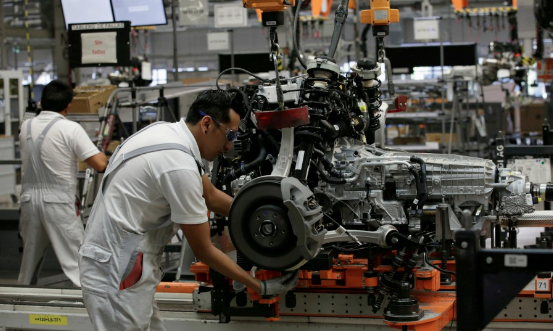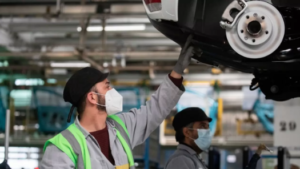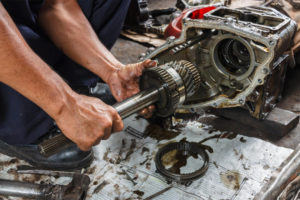
Alternative engines: When would they impact the aftermarket in Mexico? Categories: 2021, News Timelines: Mexico, Mexiko
Announcement Date : 9 Februar 2021
The size of the aftermarket business in Mexico has been affected in recent years by several variables. Drivers are making less workshop entries and car registrations have been on the decline since 2016. In 2020, the sudden Covid-19 pandemic created unprecedented challenges for all companies operating in the Mexican automotive aftermarket.
Will these technologies change the composition of the aftermarket in Mexico?
Despite the challenges faced in the Mexican aftermarket, many strategists question what the future holds amid rising alternative engine registrations. Will these technologies change the composition of the aftermarket? Should the strategists take short term actions to respond to this trend?
To provide context, Mexico had 950,000 new car registrations in 2020, this is 28% less than 2019. Of the cars registered in 2020, 2.5% are alternative engines (around 23,750 units). The share of alternative engines from new registrations have increased by 32% since 2019 (where 1.9% of registrations were alternative engines). Mexico – like many other countries – are experiencing an increased demand in alternative engines.
photo: El Financiero
With that being said, the share of alternative engine registrations in Mexico for 2020 is very low vs. some of the countries in Europe where the share of alternative engine registrations is over 10 times more than Mexico (UK 29%, Italy 27%, Spain: 22%, France 22%, Portugal 19 % and Germany 25%). Even if these huge shares of alternative engine registrations in Europe are sustained in the future, the share of alternative engines in the European UIO (car parc) is still very low and will be for some time.
Some futurists predict that mechanical garages will not exist in 10 years because of alternative engines. This prediction is incorrect even for countries that are abundant in alternative engines, and in the case of Mexico this prediction is impossible to imagine.
In Mexico, more than 50% of the private car parc is over 10 years old (these cars certainly do not have alternative engines). By comparison, in 2020, 0.2% of the parc are alternative engines (yes… it is less than half a percent).
Gipa has analyzed the impact the aftermarket in Mexico
photo: tu guía de actualidad
GiPA have created a forecast tool for the coming years, and assuming a moderate recovery of car registrations, the share of alternative engines will be no more than 0.5% of the car parc in 2025. Even if the share of alternative engines registrations doubles every year for 15 years, they are unlikely be more than a tenth of the total car parc at that moment.
GiPA has analysed the interest of Mexican aftermarket players in receiving training and tools to work with alternative engines. The result is quite clear: alternative engines are irrelevant to them.
The reason for this is easy to understand, particularly for the independent sector: cars with alternative engines are not arriving in the workshop! Even if clients with alternative engines flooded the workshop, it is also true that most independent aftermarket players may not be equipped to manage repairs for this engine type.
As well as this, owners of alternative engines are also aware that the independent sector are not prepared to service their car, so they will go to the OEM network where they can be sure that the resources are in place to take care of their car.
Statistics about the impact the aftermarket in Mexico
photo: investing.com
Statistics for Mexico show that in 2021, OEM dealers will need to serve 82 cars before they receive one with an alternative engine, whereas independent mechanical garages will need to serve 805 before receiving a car with an alternative engine. Given these figures, why would an independent player invest in alternative engine repairs if it makes such an insignificant dent in their aftermarket business? Currently it makes no sense to invest in this engine type, as it will take many years before the independent sector can have the possibility to generate an income from them.
Does this mean that aftermarket strategists in Mexico should not think about alternative engines in the short term? The answer is yes, it should not be a concern for the foreseeable future. Mexico, like other LATAM countries will certainly take much more time to have a significant share of alternative engines in the UIO relative to European countries that have more maturity with the engine type.
Therefore, in the short term it is safe to safe that alternative engines will not be the cause of any decrease in the aftermarket volume in Mexico. In 2021, other factors will have a more significant negative impact on aftermarket volume. For example, the economic conditions in Mexico are currently difficult which has forced some drivers to migrate from car usage to public transportation to save on costs.
The impact of Covid-19 in Mexico
Drivers that have continued to use their car have delayed (or not carried out at all) necessary aftermarket activities, such as repairing body damage from accidents and tyre changes. The impact of Covid-19 also means more drivers now work from home as a way of reducing the risk of infection. Companies also discovered the working from home model reduces costs, so employers are likely to promote it more in the future. The consequence of increased working from home is fewer annual kilometers driven (potentially also after the pandemic is over) – less kilometers driven will decrease the level of aftermarket volume.
photo: Medium
Mexico is one of the countries with the largest aftermarket business in the world
And though it is not growing currently, the reason is not alternative engines. They are not a threat in the coming years particularly for independent aftermarket players. Efforts in the short term should be focused on solving other variables that are causing a more significant impact to aftermarket business in Mexico. GiPA have analyzed these variables and have plenty of solutions for companies wishing to find the best opportunities.
















